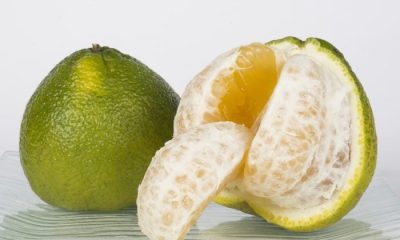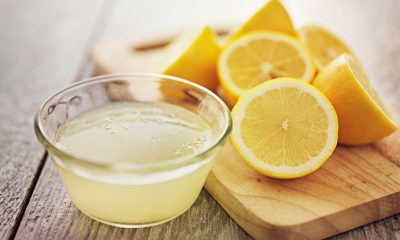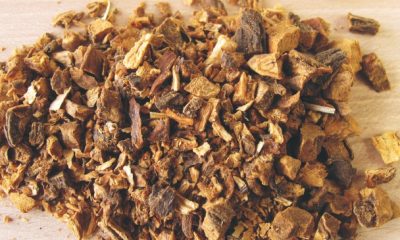Health
Gluten-Free Diet: benefits, recommendations, care and more
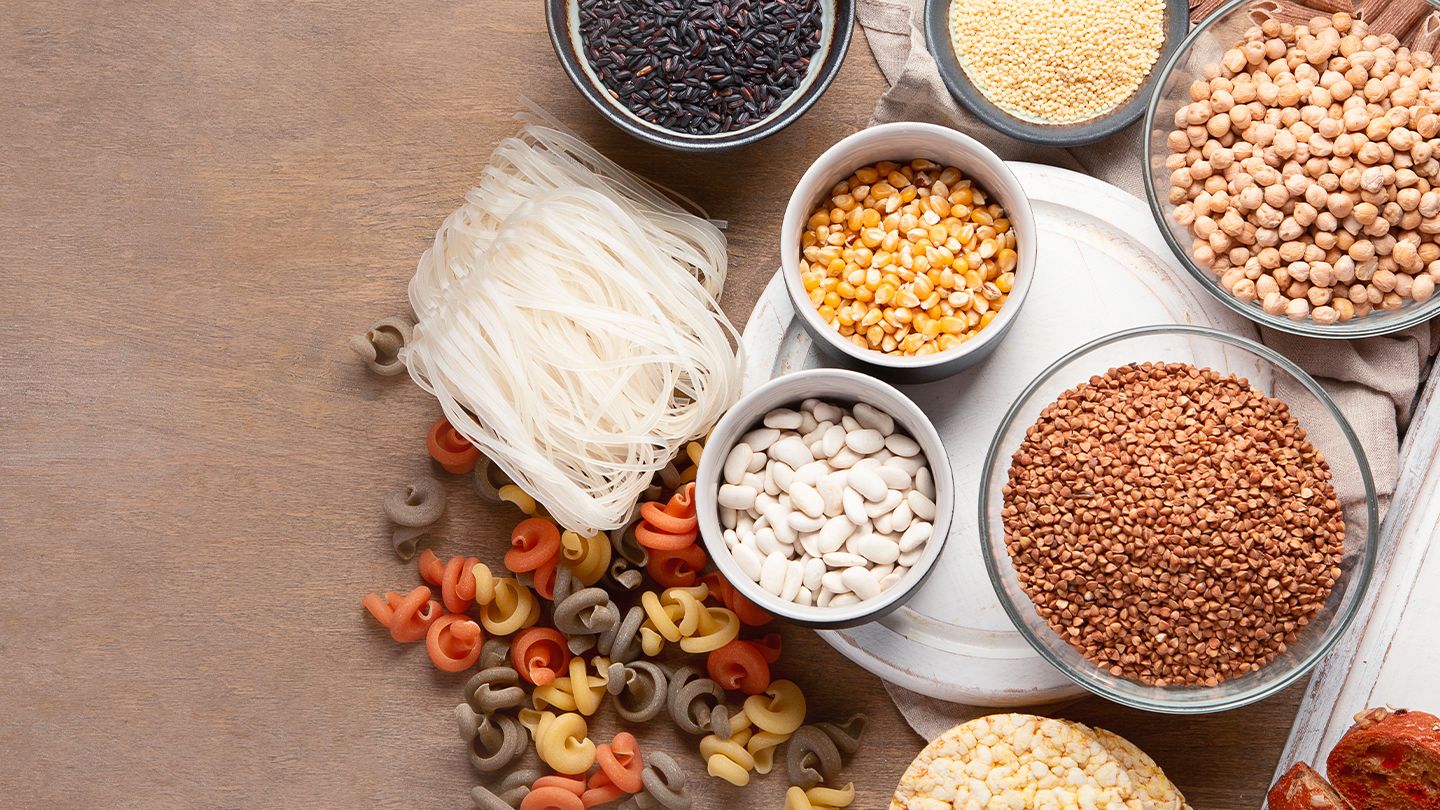
Discover the Gluten-Free Diet: benefits, recommendations, care and more.
Gluten is a protein found in wheat and other grains, and therefore it spreads in bread, pasta, conventional flour, semolina, cakes, etc.
For people who have difficulty digesting it (gluten intolerance or celiac disease), it is essential to adopt a gluten-free diet , as the absorption of gluten causes significant digestive disorders.
But in recent years, the gluten-free diet has started to be adopted by people who do not tolerate gluten, due to the health benefits it provides.
Going gluten-free is an important dietary option for many people and can provide many health benefits, such as reduced inflammation, a smoother digestive process, increased energy, clear skin, hair protection, and regulated hormones, among others.
Gluten free diet
The term gluten-free has become a buzzword in recent years and is even considered a fad diet, but there are many misconceptions that need to be understood before jumping into the world of being gluten-free.
For starters, gluten is a type of protein found in wheat, rye, and barley.
However, due to its usefulness as a binding agent and relatively low cost, you can find gluten in many surprising places, such as pickles, sushi, curry powder, hot dogs, and licorice.
Pick up a random food package at the grocery store, and there’s a chance it might contain gluten.
Obviously, completely eliminating gluten from your diet is therefore a challenge, although, in the last decade, gluten-free options have increased exponentially.
Now, the gluten-free diet has come into the spotlight due to increased awareness and diagnosis of celiac disease across the country (and the world), and the understanding that not all chronic stomach concerns can be quickly label IBS (Irritable Bowel Syndrome).
Celiac disease, by definition, is a genetic autoimmune disorder.
When a person with celiac disease consumes gluten, the body identifies the protein as a foreign or dangerous substance, causing an immune response in the small intestine.
This immune response can seriously damage the small villi in the small intestine that are essential for the digestion of food and the absorption of nutrients.
Additionally, the immune response causes vomiting, nausea, fatigue, bloating, weight loss, ADHD, irritability, irritation and rashes, growth retardation, joint pain, depression, and dozens of other symptoms.
Up to 1 in 100 people are believed to have celiac disease, but the diagnosis is still rare.
About 2.5 million people are believed to have undiagnosed celiac disease in the United States alone.
In addition to celiac disease, there are also wheat allergies (1 in 1,000) and gluten sensitivity as reasons to eliminate or greatly reduce the amount of gluten that is included in your diet.
What further complicates this is that many people show no definite or severe symptoms of the disease, but their small intestine is still damaged, sometimes for years.
It may only manifest itself in small ways, like chronic fatigue or eczema, but it won’t become a more obvious health problem for years or even decades.
However, the damage is still being done.
After eliminating gluten from your diet, symptoms can often clear up in a matter of weeks, but damage to your digestive system can take years to fully heal.
The gluten-free trend
With the massive boom in the gluten-free food industry, initially driven by people needing to eliminate gluten, this eating style has also become “trendy” and “popular,” causing many people to try the diet, believing that it can be a healthier option, like cutting carbs.
However, the nutrients found in wheat, rye, and barley are incredibly important to human health.
Whole grains can help with everything from heart health and diabetes to obesity and cancer.
Gluten itself is related to strengthening immune function and maintaining the balance of the intestinal flora.
Doctors encourage people with gluten sensitivity to “taste” gluten again once a year to see if the sensitivity has decreased, due to the benefits that whole grains have on the body.
In other words, if you are not in the approximately 2% of the population that may suffer from celiac disease, wheat allergy, or gluten sensitivity, eliminating gluten from your diet can have a negative effect on your diet.
Also, if you cut down on your gluten for “modern” reasons, but you actually have celiac disease, it will be much more difficult to diagnose.
The small amount of gluten you consume will continue to damage your intestines over time, even if you aren’t seeing other serious symptoms.
With that said, for those with celiac disease, a wheat allergy, or a gluten sensitivity, there are many health benefits to going on a gluten-free diet!
Health benefits of Gluten-free diet
The health benefits of a gluten-free diet include:
1.- Reduces inflammation
By eliminating gluten, you can prevent the immune response from inflaming the tissues of the small intestine, which can quickly eliminate the more immediate symptoms of celiac disease, such as vomiting or diarrhea.
This inflammation will also mean less cramping and bloating.
2.- Improves digestion
The small intestine is a critical part of human health, as we absorb many critical nutrients in this part of the digestive tract.
Eliminating gluten will protect the villi, ensuring that they can absorb all the nutrients that are available in our diets.
3.- Increase energy
Chronic fatigue is one of the most common complaints from people with gluten intolerance or celiac disease, so cutting out gluten can give you an energy blast.
The gut is a key to overall health, so ensuring you’re in good shape has effects in many other areas.
4.- Skin protection
Rashes, psoriasis, and eczema are seen at higher frequencies in people without a diagnosis of celiac disease.
So if you eliminate gluten under this condition, you can enjoy clear skin that does not itch or discolor when you eat certain foods.
5.- Hair care
One of the long-term effects of gluten attacking the body’s small intestine is nutrient deficiencies.
The body will protect its vital functions, but things like hair growth and health are often secondary, and premature hair loss is common in undiagnosed celiac patients.
Keep your luscious locks in place by cutting out the gluten.
6.- Better immune function
More than 50% of the immune function in our body occurs in the intestine, and when there is chaos in the small intestine, the balance of the flora of bacteria is severely compromised.
This can weaken the overall immune system and lead to chronic illness, so getting rid of gluten is a good idea.
7.- Regulates hormonal levels
Women who suffer from celiac disease or gluten sensitivity often experience menstrual irregularities, often miss periods or are very severe.
By being gluten-free, the immune system can behave properly and prevent imbalance in hormone levels, providing significant relief for many women.
8.- Reduce stress
High levels of anxiety and depression are frequently seen in gluten or wheat intolerant patients.
So if you want to get a good night’s sleep and decrease irritability, cutting out or completely eliminating gluten could be the solution you are looking for.
Final word of warning: If you think you have celiac disease, are gluten sensitive, or have a wheat allergy, talk to your doctor or allergy specialist and get tested, rather than just jumping in the bandwagon and cutting out all the foods in it.
Gluten from your diet. For those people who don’t have all three of these conditions, a gluten-free diet is not only unnecessary but can be dangerous to your health!
Risks of a gluten-free diet
For many, reducing or eliminating it can even lead to weight gain, as most gluten-containing food alternatives are higher in fat.
Also, the gluten-free diet can lead to deficiencies in the essential elements that you will need to get.
The most common deficiencies in the gluten-free diet are:
• B12 vitamin
• folate
• iron
• zinc
• magnesium
• calcium
You can anticipate and find out which foods will help you fill this gap or you can use our vitamin supplements
Of course , some do lose weight, but this is mainly due to the fact that becoming “gluten-free” offers you a smaller variety of foods and therefore reduces your daily caloric intake.
However, whole grains are part of a healthy and balanced diet, and eliminating gluten if you do not have the real need, you lose many nutritional benefits of this type of food (vitamin B, minerals, etc …).
Start a gluten-free diet?
To start, you should focus on maximum consumption of raw / unprocessed foods, such as fruits, vegetables, chicken, fish, and lean meats (all gluten-free).
This is a good way to rule out all sources of gluten in your diet.
Add in that in everyday life, going to the restaurant or going out to eat can quickly get complicated when you are on a gluten-free diet…
So it would be smarter to contact establishments in advance to find out if the menu offers gluten-free options.
Also, do not forget to always inform your server about your sensitivity to gluten, or about your various allergies, as they are used to it and will be happy to help you.
Beware of hidden gluten!
Eating industrial and refined foods is not recommended because gluten can be disguised and not explicitly listed as an ingredient.
However, today most stores have a section dedicated exclusively to gluten-free products
Products that generally contain gluten:
• Bread
• Pasta
• Flour in general
• Matzo
• Pita bread
• Couscous
• The cakes
• Muffins
• Cookies
• Cakes and pastries
• The wheat
• Barley
• Sound
• Semolina ;
• Oatmeal (which contains a protein that is very similar to gluten but not quite the same)
Also note that many oat and field products will be cross-contaminated, so if you decide to buy oats be sure to buy from a certified gluten-free brand).
What are gluten-free foods?
Excluding gluten from your animation means excluding certain foods from your gluten-free diet…
But fortunately, there are still many gluten-free alternatives for foods like cereals and baked goods, as well as many fresh foods that can replace those that contain gluten.
•fruits:
Apples, oranges, grapes, bananas, pears … etc.
•Vegetables:
Potatoes, corn, broccoli, cauliflower, zucchini, cabbage, lettuce, etc.
•Sauces and spices:
Ketchup, Mayonnaise, Salt, and Pepper – Be wary of soy sauce and general salad dressings that may contain gluten!
•Raw, fresh and unprocessed meat.
Chicken, beef, pork, fish, eggs, etc.
Pay attention to hot dogs, cured meats, and any seasoned / prepared meats as they may contain gluten.
•The milk products:
Milk, cheese, yogurt, butter, cottage cheese …
Pay attention to processed cheeses and blue cheese that may contain gluten in this loaf pan. Also, always check the labels on yogurts, making sure there are no added fiber or grains.
•accompaniments:
Rice, potatoes, beans, quinoa … and avoid instant puree!
•Nuts and Spreads:
Peanut butter, almond butter, pistachios, cashews, peanuts… and avoid all roasted, salty and flavored nuts…
Health
10 shocking health benefits of rosemary tea
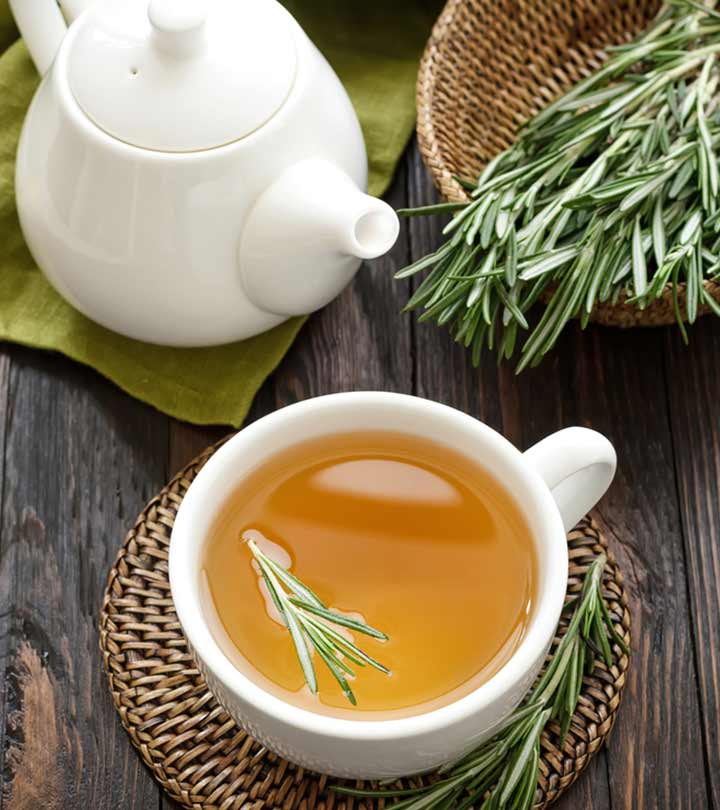
Table of Contents
Health
Benefits of fasting for 24 hours
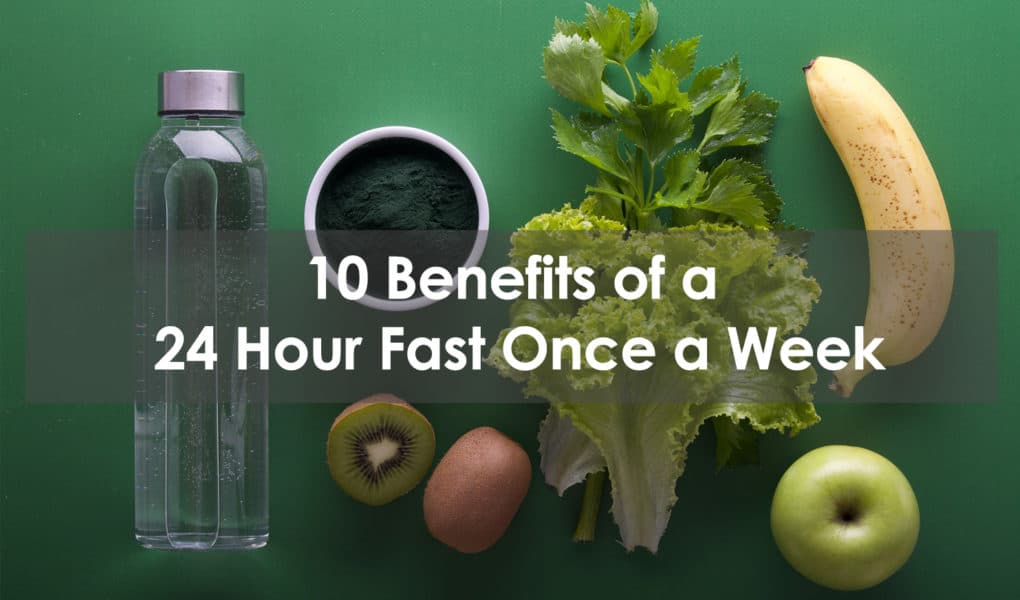
Discover the benefits of fasting for 24 hours.
24-hour intermittent fasting is often recommended for weight loss, but also its many health benefits.
In this article, I detail the benefits of intermittent fasting, and particularly its practice over 24 hours. You will also be able to find my testimonial and my advice for a successful 24-hour intermittent fasting.
24hr Intermittent fasting to live longer in good health!
This sentence comes up constantly when one is interested in the subject. Simple fashion effect or real health interest? That’s the real question.
The objective of this practice is based on calorie restriction and resting the digestive system as a whole.
When we eat too much, binge, and get too much protein, our aging process is accelerated. Our body ages faster. To counter this effect, it is, therefore, necessary to fast. You boost your production of growth hormone, a hormone of youth.
In practice, it remains very complicated. It was Dr. Valter Longo who simplified the practice of intermittent fasting to reap all the health benefits. But in reality, is it effective?
The benefits of 24 hours intermittent fasting
Many scientific studies have highlighted the following health benefits of intermittent fasting:
• Promote weight loss, maintenance, lower bad cholesterol and increase well.
• Reduce cardiovascular and cancer risks.
• Regulate blood sugar by lowering insulin production and increasing fat metabolism.
• Lower the markers of inflammation ( responsible for the aging process ).
• Stimulate growth hormone production ( 2000% during 24-hour intermittent fasting ). This molecule helps you fight to age, tap into your fat and increase your muscle mass.
• Regulate hormonal disturbances after meals.
• Diversify the composition of the intestinal flora.
• Improve the quality of sleep.
It should be noted that these benefits are mainly found in a population that is overweight or obese, sedentary, or suffering from metabolic disease. The effects of intermittent fasting in healthy, physically active, or athletic people seem small to non-existent.
Intermittent fasting and weight loss
According to scientific research, intermittent fasting is effective for weight loss.
The main reason for the effectiveness of intermittent fasting on weight loss is calorie restriction.
Indeed, skipping one or more meals considerably reduces your food consumption. You then find yourself in an energy deficit, and your body has no choice but to draw on the stock of glycogen and fats to continue to function.
Practiced 1 to 2 times a week, over 3 to 24 weeks, intermittent fasting can lead to a weight loss of 3 to 8% of the initial weight, with a non-negligible share of abdominal fat (reduction in the circumference of cut).
However, over the long term, the evidence on the effectiveness of intermittent fasting remains very weak. We don’t know if, as with all low-calorie diets, it leads to a Yoyo effect and significant regain of lost pounds.
To lose weight permanently, mainly fat, while maintaining your muscle mass, it is advisable to combine a slight caloric restriction and the practice of sport regularly.
Need to lose weight permanently?
My Sport to lose weight program has already enabled hundreds of people to lose weight, improve their health and be in better shape! It includes sports sessions in videos, tools to calculate your fat loss, tips for starting running, recipes, and much more… It’s never too late to start the sport and lose weight for your health.
Opinion on the intermittent fasting 24h
So I wanted to get to the bottom of it and test this practice. To simplify things, Dr. Longo has been testing different protocols for several years. Simpler protocols to apply daily while maintaining the benefits. For people with a healthy lifestyle, practicing 24 hours a month is very effective.
So I fasted for 24 hours. The easiest way is to start after dinner. You eat dinner normally, then nothing until dinner the next day. Hydrate well. You can also consume tea, coffee, infusions but without sugar.
I was afraid of being too hungry, of being a wreck unable to move. And not at all. I did my intermittent fast one day back from vacation, in the car. I felt good, without a stroke. What a pleasure to sit down to eat in the evening, even if the goal is to eat normally and no more than usual.
I resumed the sport the next day with a big day ( 3h30 of cycling chained to 1h of jogging ). I felt good, I didn’t have any cravings. I even recovered better. I am full faster on the meals that follow. The results are very positive.
However, here are some tips to guide you:
• No sport on the day of intermittent fasting, or a short cardio session (30 minutes).
• Take care. Get out of your house, otherwise, the day will be too long to manage unless you have plenty of tasks to accomplish.
• Don’t throw yourself on the food when you eat again. Don’t say to yourself: “it’s good, I’ve done the hardest I can let go”.
• Remember to drink well ( 1.5 to 2 liters of water ) and take hot drinks for satiety.
Be careful if you have medical treatment, do not do it. I do not know the actions of this practice under these conditions. A drug does not have the same effect in these conditions, so check with your doctor.
I await your reactions after your tests. Intermittent fasting is increasingly practiced in the United States, to fight against junk food and diseases of civilization. Its health benefits are undeniable. Live old and above all live better!
Health
Benefits of hibiscus tea for skin

Table of Contents
- Benefits of hibiscus tea for skin
- Greater elasticity in the skin
- Prevents and fights cell damage
- Hydrates in depth
- Unifies skin tone
- Discover the benefits of hibiscus tea for skin.In today’s post we want to offer you a wonderful option to enhance your health and even take care of your beauty with a gift from nature whose qualities have been known for thousands of years.
We want to talk about the Hibiscus tea, a plant native to China and Japan, also known as China rose, whose extract has a wide range of properties, among which are antiseptic, digestive, diuretic, and others that we will detail below.
Its cosmetic properties are so amazing that it has been called “vegetable Botox”, rich in antioxidants and vitamin C.
Its effects after constant consumption in the form of an infusion, for example, have been compared to the effects of Botox injections, since its tightening effect helps to hide expression lines and sagging of the face.
Its active components act at the cellular level, nourishing and moisturizing the dermis, creating a wonderful anti-aging effect.
There are 5 different varieties of Hibiscus in the world: Hibiscus Rosa Sinensis, the best known in Spain, Hibiscus esculentus, Hibiscus sabdariffa, and Hibiscus tiliaceous.
Its flower is edible and its different forms of presentation, in powder, in preparation for infusion, or syrup, allow us to take it comfortably and prepare masks that will surely become great allies for your skin and hair.
In India, hibiscus has traditionally been used to treat hair problems, reduce dandruff, moisturize the scalp while nourishing and strengthening it, and even prevent the appearance of gray hair.
Benefits of hibiscus tea for skin
Greater elasticity in the skin
As we have previously mentioned, the Hibiscus tea will provide us with its tensor effect, greater elasticity, and firmness in the skin, keeping it looking young for longer.
Prevents and fights cell damage
Hibiscus tea fights free radicals that cause oxidation that starts the aging process in the skin, the largest and heaviest organ in the body.
Hydrates in depth
After using the usual cleansers we remove the moisture and natural agents that protect our skin, if we regularly use hibiscus masks we will ensure that our facial skin is sufficiently hydrated avoiding dryness and its unwanted consequences.
Unifies skin tone
Hibiscus is known for its exfoliating and anti-blemish action and its beneficial effects in cases of hyperpigmentation, unifying the tone and softening the features.
For all these benefits, the Hibiscus tea is considered a natural and effective anti-aging recipe, do not forget to try it.
Related Searches…
Hibiscus tea for skin whitening
Hibiscus tea benefits hair
How to make hibiscus tea
Benefits of hibiscus for lips
Hibiscus for skin tightening
How to use hibiscus for acne
Benefits of hibiscus oil for skin
Hibiscus flower benefits for hair and skin
Hibiscus tea effect on kidneys
Hibiscus powder benefits
Homemade hibiscus face cream
Hibiscus soap benefits for skin
-

 Food5 months ago
Food5 months ago10 + Benefits of carrot juice and side effects
-

 Food5 months ago
Food5 months ago8 shocking benefits of leek juice and side effects
-

 Health5 months ago
Health5 months agoBenefits of guava leaves Sensually
-

 Health5 months ago
Health5 months ago10 shocking health benefits of Canary seed milk
-

 Health5 months ago
Health5 months ago7 health benefits of cashew leaves and side effects
-

 Health5 months ago
Health5 months ago13 shocking health benefits of Thai eggplant
-

 Weight Loss5 months ago
Weight Loss5 months agoKelly Osbourne weight loss 2022
-
Weight Loss5 months ago
Chrissy Metz Weight Loss Secret (2022)

